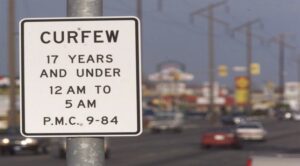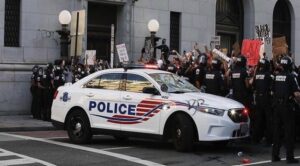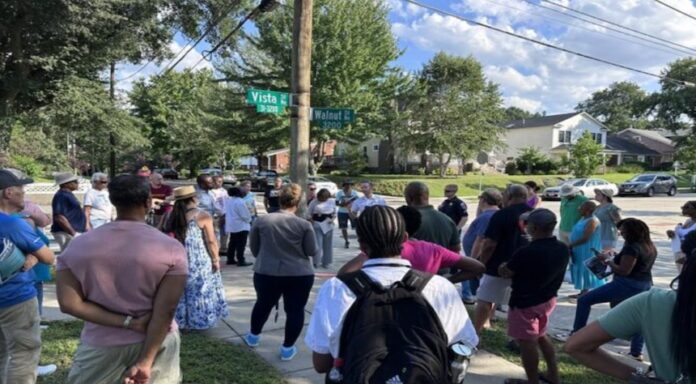This year, teen curfews are all the rage across U.S. cities. It’s simple: Politicians want to appear to “do something” about crime and mayhem among kids under 16 years old. Even though curfews are useless, they’re better than doing nothing.
Washington, D.C., has decided to enforce its curfew, which has been in place since 1995, starting on September 1. The police created youth curfew enforcement zones and assigned officers to patrol them.
Sadly, on the first night that the curfew was enforced, there were four shootings near or in the curfew enforcement zones. No teens were arrested to be handed over to the Department of Youth Rehabilitation Services.

Not surprising, say most experts.
WGNO:
According to the Marshall Project, arrests for violent crimes among people aged 17 and younger have declined for many years in America. Federal data indicates that even when youth commit violent crimes, the crime rate is highest in the late afternoon before many juvenile curfews start.
Curfews, say critics, are not only ineffective but also harmful to young people. Curfews are increasing the number of interactions between Black and Latino teens with the police, according to advocates across the nation. Teenagers may be arrested or cited for curfew infractions, while their parents could face fines of up to $1,500 if they violate the rules repeatedly.
David Wilson, professor of criminology at George Mason University said that the academic community is in agreement that curfews don’t reduce crime.

He said, “The problem with crime policies is that politicians and the public ignore research when their common sense notions conflict with it. I’m not sure why.”
When I was a teenager, curfews were more effective. In the suburb of Chicago where I grew up, there was a curfew. We all knew to go home at 10 p.m. unless we wanted to see our parents taken to the police station for a curfew offense.
The world was very different back then. Parents were different. Police were different. Society was even different. Curfews were a way for parents to control their children and bring them home in a reasonable time. Curfews were not needed to prevent violent crimes by teenagers or other criminal activity.
Curfews, no matter how well intended, well thought out, or strictly enforced they are, do not lower the juvenile crime rate.

USA Today:
Bill Clinton demanded in 1996 that cities and towns impose curfews for teenagers at night. According to the National Youth Rights Association, more than 400 cities, towns, and counties today have curfews for teenagers.
The Campbell Collaboration, a social science research network based in the United States, published a 2016 review that summarized the results of 12 studies. The review found that curfews had a negligible impact on crime, but no effect during non-curfew times.
The 12-15 year olds may be considered children by the law but they are the preferred age group of gang hitmen. A curfew will not stop a killer who is soulless and has no conscience. The police, the laws, and their parents have no respect for other kids who are out so late. This is the most significant change that has occurred in the past 50 years.










